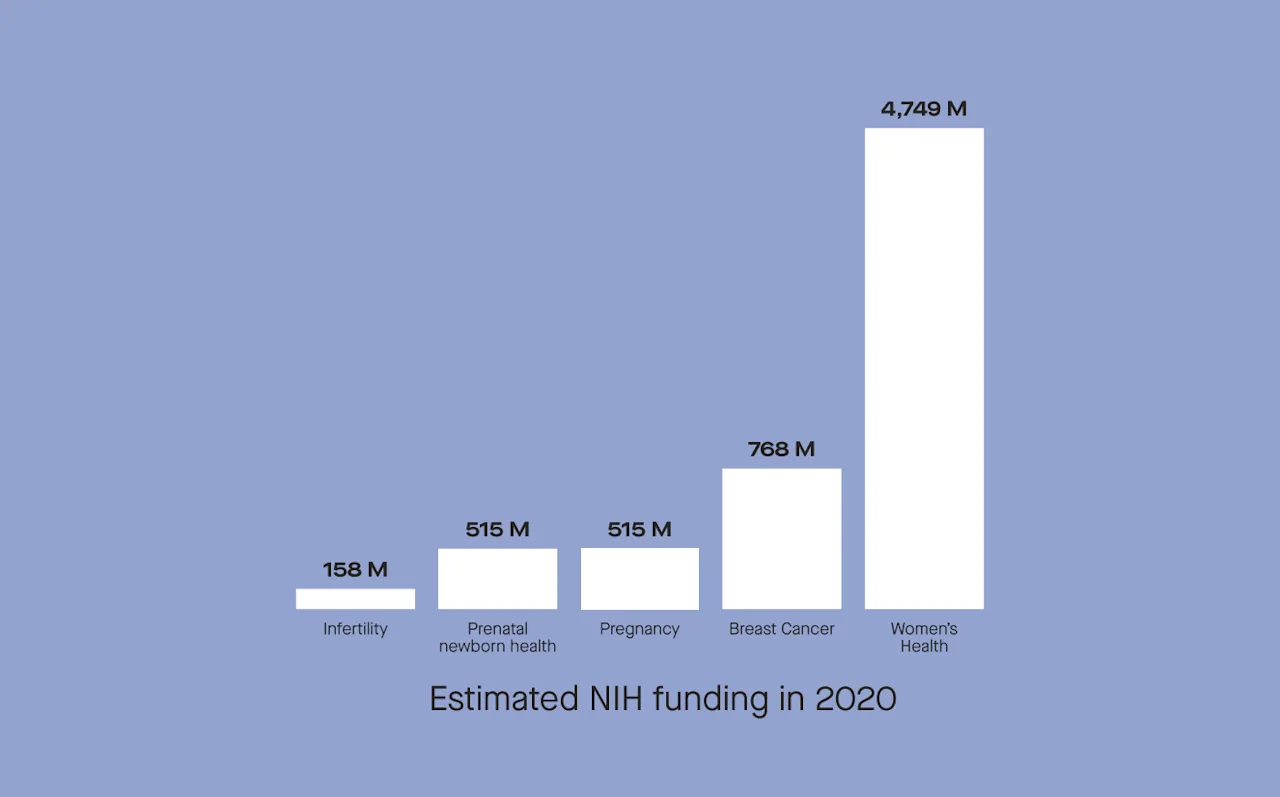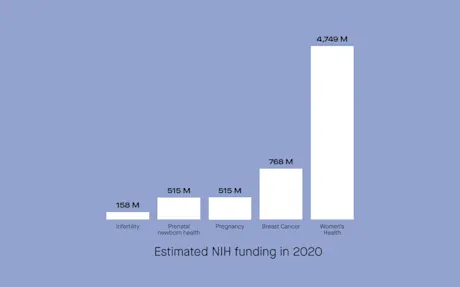Better fertility research
We’re on a mission to uncover the "why" behind infertility and work toward a future where every person with ovaries can predict their chances of getting pregnant.

Here's why we're modernizing fertility research


Today, research is reactive
Most of the data we have around fertility comes from patients in infertility clinics. That means we have little insight into fertility health earlier in life.
There’s a gender gap
Here’s a crazy stat: in 2019 alone, there were 1,003 studies about erectile dysfunction (!) compared to 178 studies dedicated to female infertility.
And… there isn’t enough of a focus on fertility
We’re seeing more funding in women’s health and wellness at large but fertility research is lagging far behind.
Modern Fertility research is proactive


Every Modern Fertility customer can opt-in to include their anonymized hormone levels in research. If you aren't a customer yet, you can contribute to closing the fertility research gap through surveys. We publish an annual Modern State of Fertility report, have numerous papers published in peer-reviewed science journals, and have presented our IRB-approved studies at The American Society for Reproductive Medicine (ASRM) Annual Conference.
Get involved
Want to get involved in research?
02
Update us on what happened since you tested. Closing the loop is essential for research.
03
If you haven’t tested your hormones with Modern Fertility you can test your hormones now or participate in a future Modern Fertility survey.
Our past research
Modern State of Fertility 2022
We teamed up with Bumble to find out how attitudes have changed around finding a partner and building families.
Modern State of Fertility 2021
We surveyed thousands to find out how the pandemic impacted people’s timelines for kids.
Modern State of Fertility 2020
We teamed up with SoFi to survey people with ovaries about how careers and money influence their plans for kids.
See also the results of our fertility survey 2019.
An examination of fertility knowledge before and after receiving at-home anti-Müllerian hormone test results. (2021)
Duration of contraceptive use is not associated with AMH levels. (2020)
Concordance of fingerstick and venipuncture sampling for fertility hormones. (2019)
LGBTQ+ individuals' perceptions of reproductive hormone self-collection tests. (2019)


Meet Dr. Nataki Douglas
“My excitement about Modern Fertility’s commitment to research is our ability to contribute to a greater understanding of normal reproductive physiology. This type of research gives women more insight into their bodies while also advancing the scientific community. Most research studies investigate disease — we’re fundamentally trying to better understand health.”
- Nataki Douglas, MD, PhD Chair of the Modern Fertility Medical Advisory Board OB-GYN, reproductive endocrinologist


